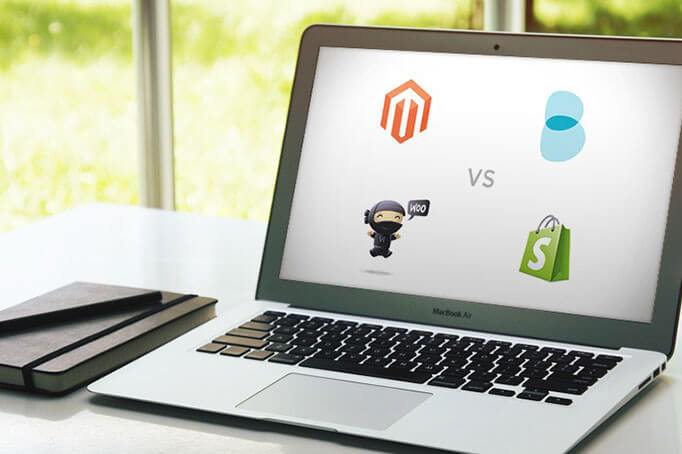Online stores are the backbone of your eCommerce venture. For a small business, it is important to take into account a strong website that supports not just the business products and services, but also casual visitors who will ultimately need to be converted into clients.
However, for a website to be successful, the platform your eCommerce business utilizes also needs to be effective and foolproof.
What is the role of a platform to your online business?
An eCommerce platform allows the sale of products and services online. The platform allows the consumer to make a purchase from the business as an online store, while on the other side the platform performs back-office functions that serve the business’ requirements of marketing, accounting, inventory, etc.
Ideally, your eCommerce platform will:
- Manage orders
- Cater to customer needs and experience
- Manage analytics and data for the business
- Manage marketing, pricing, and promotions
- Manage 3rd party integrations when needed
- Take care of security matters for customers, as well as vendors
Different platforms take care of different aspects, including products and services. Differentiation of platforms also occurs through:
- Design, simplicity of set-up, and use
- Analytics and reporting levels
- Maintenance and running costs
- Order management tools
- Marketing features, including loyalty and abandoned carts
- Mobile support
- Multiple currency and languages support
- Supporting customer experience and customer care
Comparison of some popular platforms
Features in a platform include the dashboard and navigation systems for the visitor or customer on the website. These also include apps that can allow users to move from purchase to payment and other similar transactions.
Platforms such as Magento, Bigcommerce, Shopify, and WooCommerce differ in terms of features offered to the customer as well as pricing, design, customer support, etc.
A direct comparison between these platforms can prove to be tricky for the simple reason that they differ in terms of features. We have compared these major platforms against 16 important business criteria that drives the selection of the right platform given business needs. We have covered 3 of these criteria in this blog as follows:
Ease of use
Magento is an open source platform and may need programming skills to setup and customize. In comparison, Shopify offers ease of use in the sense that it may not require programming skills to launch; however, it helps to call in a professional for customizing it to your needs. Attempting to compare either of these to platforms designed for the small to mid-size business would be unfair, as there are instances where typical, larger businesses have also utilized them successfully.
Bigcommerce and Volusion may be considered platforms which are standard for larger businesses, but their easy-to-use features make them a popular choice for small businesses, as well.
Pricing
Pricing differs in terms of the plans offered by each of these platforms. Pricing or fees include features like storage space, bandwidth, and transaction fees. Shopify is perceived as a reasonable E-Commerce platform for launching a business. The plans, as well as pricing, offered by the different companies is seen as highly competitive by some users.
Marketing
SEO practices differ among the platforms, which can result in differences in the way businesses perceive user engagement. User engagement also differs in the way microdata is handled by the platforms. Depending on speed and how content is managed, search engines will either take note or not post certain data. Bigcommerce is believed to have a faster loading system for its websites, which allows for better search engine ranking.
Which one is right for you?
Choosing the right platform is a mix of expertise and understanding of business needs. The right choice would eventually be dictated by the products/services you provide, your processes, payment gateway and transaction details. Finally, all of these criteria should be compared with the features offered by the platforms available in order to choose the best fit.
About Author
Jagruti Patel manages the application development division at Analytix Solutions which includes custom software, website and eCommerce site development. She has a diverse and cross cultural background ranging from working with startups to established brands across different continents.
